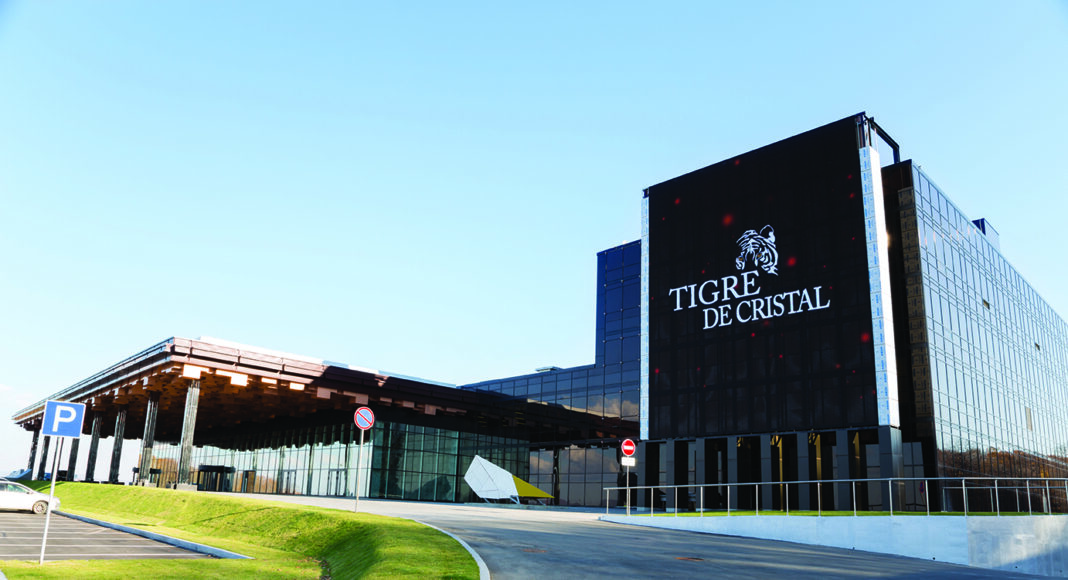Summit Ascent Holdings has reiterated that it is preparing at least US$200 million in investment funds for the Tigre de Cristal second phase development.
According to Stylianos Tsifetakis, chief operating officer of G1 Entertainment, the company intends to create a comfortable tourist area in the Primorye region not only for casino visitors, but also for families and children.
“We plan to invest at least US$200 million in the construction of the second phase,” he said. “A facility with a total area of about 63,000 square meters is planned, with a hotel offering 350 rooms will be built, as well as up to 1,500 square meters to be used for restaurants, bars, conference rooms, and other entertainment areas.”
He added that “the project includes a large shopping center with a food court and a family recreation area, and we also want to create a pool area with a transparent dome and a tropical forest atmosphere. In our opinion, this will be unusual and in demand among the residents of the Far East.”
Tsifetakis noted that the new shareholders need to make minor changes to the plans for the second stage of Tigre de Cristal construction, and the project is still in the midst of the approval process.
Earlier this month, the Suncity Group completed acquisition of an approximately 69.7 percent stake in Summit Ascent, taking a controlling share in the operator of Tigre de Cristal in the Russian Far East.
Tsifetakis also stated that work on the development of the existing casino continues, and since January, about US$5 million has been invested to create apartments for employees, a food court restaurant, lounges for VIP players, and a nightclub. At the moment, the casino has more than 1,100 employees, and even during the pandemic, salaries have not been cut.
He concluded, “Tigre de Cristal opened in October 2015, and during all this time we see not only progress in the development of the gambling zone, but also in the development of Vladivostok and Primorye as a whole… From the Republic of Korea alone, initially the tourist flow was 50-60,000 people per year, and already last year there were almost 300,000 Korean tourists. We have seen a positive effect from the introduction of e-visa for 53 countries. As soon as the borders are opened, this will have a significant impact on Primorye Territory.”
In its latest quarterly report, the company reported a surprisingly strong set of results, helped by support from the local Russian market.
“ This is the greatest indication that the group is not solely reliant on foreign visitors.”
The Tigre de Cristal reopened on July 16 and the company was EBITDA positive in both August and September due to the resilience of the mass table and slot businesses.
“This is the greatest indication that the group is not solely reliant on foreign visitors,” it said in a note. “The local Russian market could already help Tigre de Cristal to stay afloat in a time when the travel ban is still in place.”
In the three months to end September, slot handle was 103 percent of that in the pre-pandemic Q1, while mass table drop recovered to 96 percent of its pre-Covid levels. Rolling volume, however, was affected by the closure of the borders.
Meanwhile, the first phase of the Shambala resort in Russia’s Far East opened in October with an entertainment show and cash prize draw. It’s the second casino to open in the Primorye region.

Primorye still a draw despite Covid, deputy PM says

Deputy Prime Minister of Primorye Konstantin Shestakov celebrated the results of casino development in the Russian Far East. In spite of the Covid-19 related difficulties,
Shestakov portrayed the overall casino development picture as one of significant success. “Even in this difficult time,” the deputy prime minister stated, “companies are ready to continue investing in Primorye. The existing tourist facilities are developing, new investors from Korea are beginning the construction of a golf course, and negotiations are underway with potential investors on the construction of hotels with casinos. All of this contributes to the formation of a strong anchor for other tourist and entertainment facilities that will be associated with the Primorsky Territory. The creation of casino resorts is also an advantage in terms of organizing a system of package tours for our guests from the Asia-Pacific region.”
Kazakhstan scores sports betting home goal
Recent changes to Kazakhstan’s sports betting law are likely to fuel black market gambling and slash tax revenue for the government, experts say.
President Kassym-Zhomart Tokayev signed the Amendments and Additions to Certain Legislative Acts of the Republic of Kazakhstan on Gambling into law in July. The key provision is the removal of all betting points to two designated gambling zones – Kapshagai and Burabai. A proposal to create a third zone was abandoned by lawmakers.
Authorities also plan a unified betting centre and all bets will be accounted for in a single monitoring point. According to the government, this will boost tax collection and simplify controls
It will also create a database of players that will help to deter tax avoidance and will introduce procedures for identifying problem gambling.











